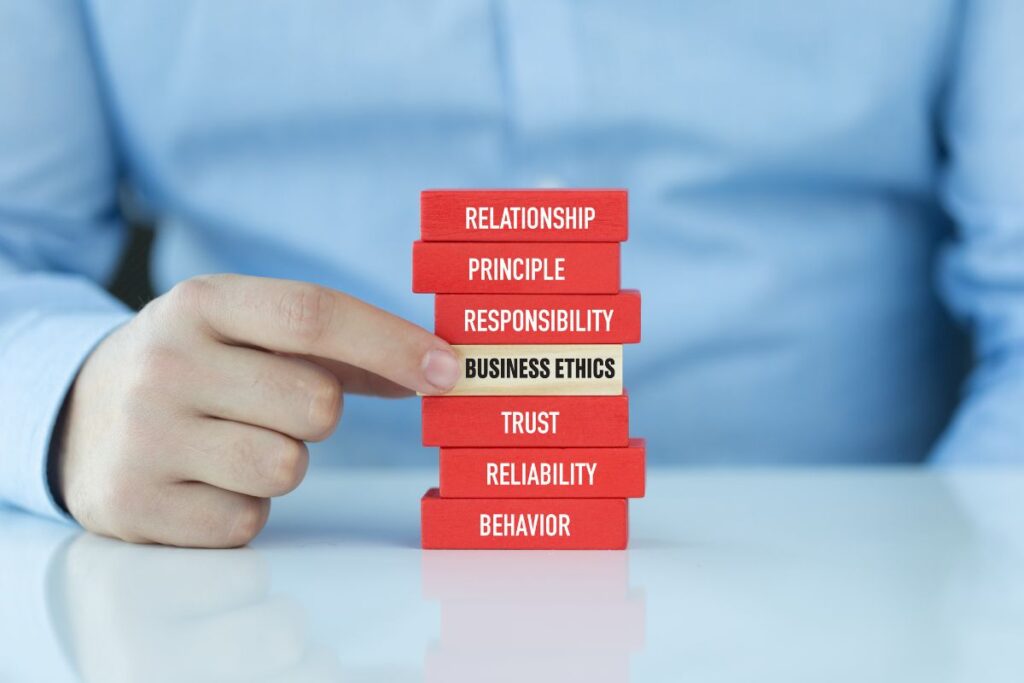
As an entrepreneur, the sustainability of your venture in the long term is undoubtedly one of your main goals. Wise investments in time and resources, as well as having a good understanding of current trends in the market, are basic ingredients for achieving success. However, experts like myself, Craig Shults know that if we take business ethics out of the picture, even a banker’s best efforts may ultimately come to naught if ethical considerations aren’t considered. Ethical practices have become increasingly important from a moral standpoint and a practical view concerning garnering support from investors and customers alike. Thus, it is highly important for entrepreneurs to make sure that they adopt best practices when managing their companies ethically – this article explains why!
Understanding The Importance Of Ethics In Business
In today’s business world, ethics play a critical role in determining whether an organization thrives or fails. While prioritizing profit margins is essential, ignoring ethical practices can severely affect a company’s reputation and financial standing. Ethical behavior reflects a company’s values and beliefs, shaping how they conduct their operations. A company can attract and retain customers and employees who support their values by prioritizing ethical business practices. It also promotes transparency and accountability, allowing businesses to build trust with their stakeholders and foster long-term relationships. The importance of ethics in business cannot be overstated, as it ensures that companies operate with integrity, fairness, and respect towards everyone involved.
The Consequences Of Unethical Behavior And What It Can Mean For A Business
In today’s business world, ethics is a crucial element that should not be taken for granted. Engaging in unethical behavior may bring short-term gains, but in the long run, it can result in dire consequences for the business. Such behavior can adversely affect the company’s reputation, alienate customers, and even spark legal battles that can potentially ruin the company’s finances. Employees who engage in such unethical behavior can cause long-lasting damage to their reputation and that of the company. Ultimately, businesses must promote ethical practices and avoid any behavior that could harm their success.
Examples Of Businesses That Have Suffered From Ethical Failures
When we think of businesses, we often associate them with success and prosperity. However, there are instances where companies have faced ethical failures, tarnishing their reputation and causing significant harm to their stakeholders. One example is Enron, a once-prominent energy company that collapsed in 2001 due to fraudulent accounting practices. The scandal resulted in thousands of employees losing their jobs and investors losing billions of dollars. Other examples include Wells Fargo, fined $185 million for opening unauthorized bank accounts in customers’ names, and Volkswagen, which admitted to installing software in their diesel cars that cheated on emissions tests. These cases serve as a reminder that businesses must always prioritize ethical practices and accountability to maintain the trust of their customers and avoid facing devastating consequences.
How To Identify Ethical Dilemmas And How To Resolve Them
As we navigate through life, we are bound to encounter situations where we are faced with ethical dilemmas. These dilemmas can range from minor to major, and the choices we make in these scenarios can have a lasting impact on ourselves and those around us. The key to resolving such dilemmas lies in our ability first to identify them. Identifying an ethical dilemma can feel complex, but it ultimately boils down to recognizing when our values and beliefs conflict with the situation. Once identified, resolving the dilemma requires careful consideration of all possible outcomes and the potential consequences of each. It may not always be easy, but by approaching ethical dilemmas with a clear mind and commitment to integrity, we can make choices that are aligned with our values and ultimately lead to a more positive outcome.
The Value Of Integrity In Business Relationships And Partnerships
Craig Shults says integrity is one of any businessperson’s most important qualities. In the world of commerce, nothing is more valuable than trust, and trust is built on integrity. When you deal with people fairly and honestly, they will be more likely to return the favor. The power of integrity is so great that it can even transcend individual deals or partnerships. People will want to work with you if you are known for your integrity. It’s an essential component of any successful career or business, and it’s something that can’t be bought or faked. In the long run, integrity will always pay dividends, and that’s why it’s so valuable in business relationships and partnerships.
Final Thoughts
Running a successful business requires more than just fiscal responsibility. The ethical integrity of a business is paramount for success and longevity. Business leaders must learn to identify potential ethical dilemmas before they arise and understand how to navigate them through sound decision-making processes. Ethics should be at the core of every business model, with rigorous training given to employees and management on the significance of staying within the rules of moral conduct. Ultimately, a company that values integrity, community involvement, and good stewardship will foster a culture in which those same practices become necessary for success. Morally adhering to ethical guidelines is essential for establishing meaningful relationships with stakeholders and can even improve public perception. By setting the highest standards in all matters related to ethics, businesses can distinguish themselves from competitors while achieving long-term results.
